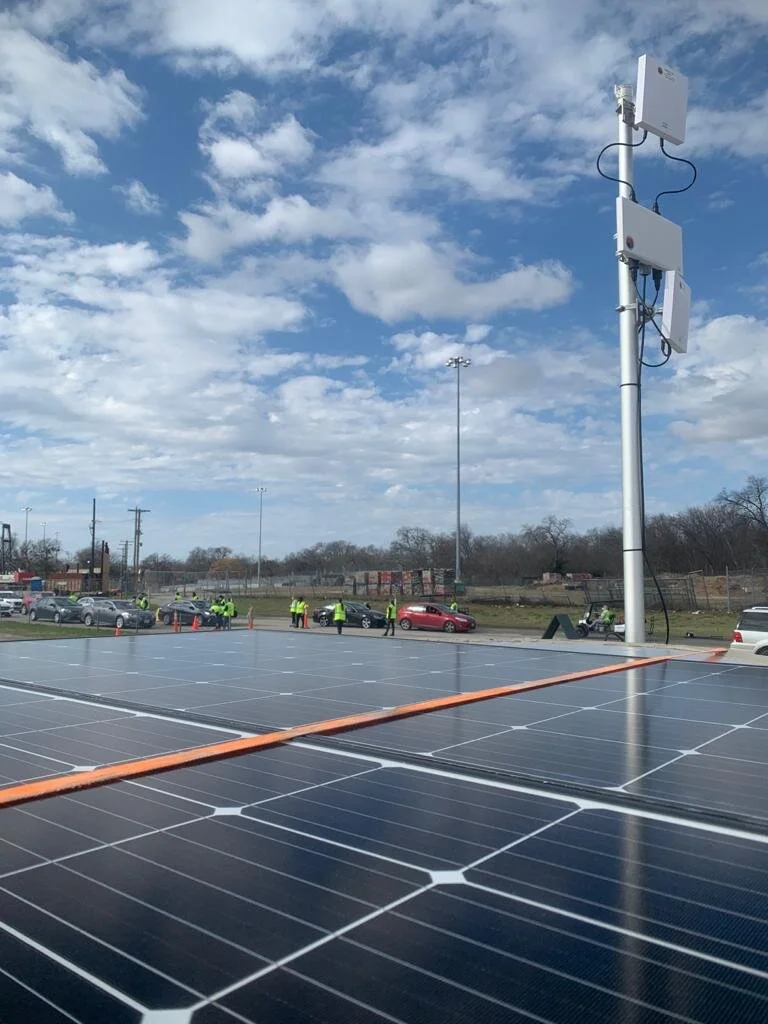Clean Energy Leaders Deploy Solar Equipment for Winter Storm Recovery
In February, the state of Texas began facing an ongoing crisis of water shortages, power outages, and extreme freezing weather conditions. Two storms- Uri and Shirley, caused record low temperatures reaching -2 ℉, the coldest Northern Texas has been in 72 years.
Over 4.5 million homes and businesses were lacking power, and nearly 15 million people were recovering without access to clean water.
In an effort to heat their homes, many people attempted to run cars and gas generators indoors causing over 300 cases of carbon monoxide poisoning.
With power equipment not winterized, and an independent electric grid from the rest of the country in an effort to avoid federal oversight, Texas is facing the most expensive disaster in state history.
Disaster recovery efforts are expected to continue into March, with compounding challenges presented by COVID-19 and future spring storms. Mobile power remains a persistent challenge for professional and community responders alike.
So, what did Footprint Project do?
In response to requests from local responders, Footprint Project activated our Solar Energy Rapid Response Team (SERRT) to support Texas’s recovery. Beginning on February 21st, Footprint Project deployed solar equipment to power mobile communication and remote charging needs for the Information Technology Disaster Resource Center (ITDRC) and Fayette County Emergency Management (FCEM).
The Footprint Project team remotely coordinated equipment shipments to our implementing partner Sail Relief Team (SRT), that was on the ground in Texas. Sail Relief Team collected donated solar equipment provided by Footprint Project and assembled a total of six mobile solar systems, two of which were mounted on ITDRC trailers and one that has been deployed to Fayette County Emergency Management.
The solar equipment is powering communications equipment and refrigeration for first responders, partner relief organizations, and community mutual aid groups. These mobile solar and energy storage systems can work independently, or integrate with generators on site to extend fuel reserves and save resources. They also reduce CO2 and particulate emissions from emergency response hubs, which is of particular importance for vulnerable populations. Additionally, with mobile solar systems we can reduce the high levels of carbon monoxide poisoning that occurs when people need to power their homes or stay warm after disasters.
Footprint Project’s mobile solar deployments are taking place in Dallas, Fayette County and other areas in Texas as the recovery situation develops.
Footprint Project would like to extend a special thank you to our dedicated partners for their support of this activation. Our Hardware Heroes providing in-kind equipment donations include SimpliPhi Power, CED Greentech, Sol-Ark Solar, and New Use Energy. Our Core Mission Support partners include Target and Arcadia.
The breadth and reach of Footprint Project has grown considerably in the past couple of years. As daunting as 2021 is, volunteers from across the country are stepping up to help combat the additional friction.
What can you do to help?
If you’d like to contribute to Footprint Project and support future deployments in Texas and beyond, please make a donation today!
For more information on local Texas recovery needs, please visit here.
To keep track of where the power outages are located in the state visit here.
Footprint Project’s mission is to help #BuildBackGreener after disasters by providing cleaner energy to communities in crisis. To donate please see below.



